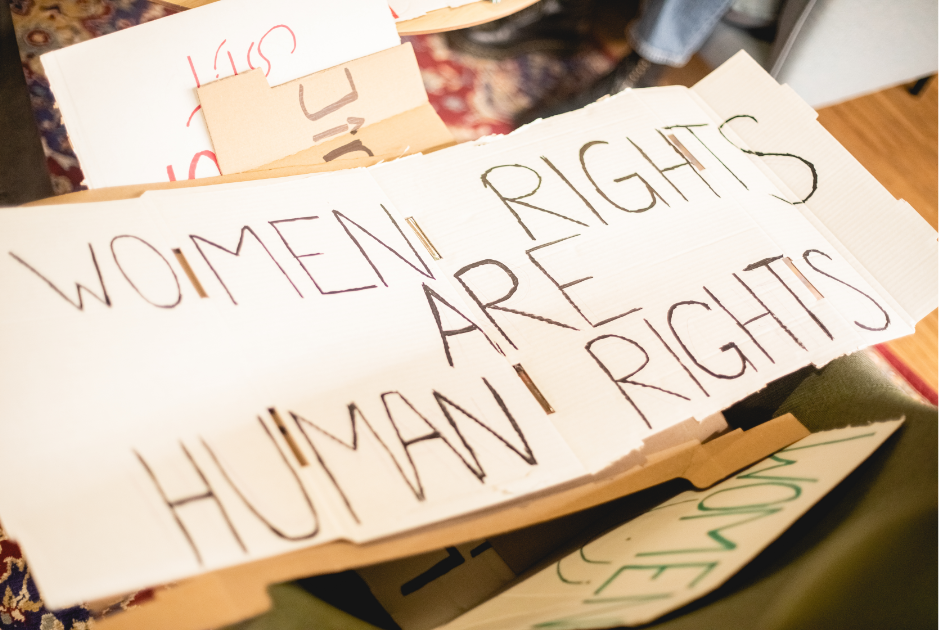An ex-union rep wants to give everyone $1,000 a month, and it's not as crazy as it sounds.
Are robots killing the American Dream?
I'm paraphrasing, but that was the core of the question plaguing Andy Stern, the former president of one of the most influential unions in the country, the Service Employees International Union.
"Technology has helped our economy become more efficient and productive," Stern writes in his new book, "Raising the Floor," "but in the process, it has led to the decoupling of employers and employees — the foundational relationship of middle-class opportunity and the American Dream."
Image via Chi/Donahoe/Vimeo.
With the robots coming, Stern felt he had lost his ability to predict the future of labor — what to do next?
It wasn’t that he didn’t believe in things like Fight for $15 anymore. It was just, well, the writing was on the wall. With three-fourths of workers in the country already living paycheck to paycheck and an estimated 47% of jobs expected to be replaced by automation in the next few decades, what was the point in fighting the same battles when every victory just led to another hill to climb?
So after years of soul searching, he came to believe something crazy: We should just pay everyone $1,000 a month.
Yeahbutwhat?!
$1,000 a month for everyone. Bear with me now.
Andy Stern, among the robots in a machine shop, with his new book. Image via Chi/Donahue/Vimeo.
It might seem crazy on the surface, but this idea is called a universal basic income (UBI), and it's actually been around for a while with support from conservatives, progressives, liberals, and libertarians alike.
Thomas Paine wrote about it; Martin Luther King, Jr. believed in it; even Richard Nixon tried to pass it into law when he was president. Many venture capitalists like it, too, because it encourages consumer options, which creates more competition.
"UBI is rooted in the belief that every human being should have at least the basic means to choose the life they want for themselves and their families," Stern writes. And that's hard to disagree with.
Think of it like this: Unemployment can lead to poverty, which can lead to other kinds of societal problems.
So why not treat the root cause instead of just the symptoms?
Photo by Ed Yourden/Flickr.
But of course, now you're asking: How would we pay for giving everyone $1,000 a month?
In his book, Stern suggests seven different options of funding UBI.
One of the ideas is to replace some or most of our existing welfare and social assistance programs with a basic income. That could save us a trillion bucks right there! (And given the choice between signing up for an array of social programs or just having $1,000 bucks a month to freely spend on things you need, I think most people would pick the latter option.)
8 million coins were dumped in a public square in Switzerland during a rally to support that country's referendum for UBI in 2013. Photo by Generation Grundeinkommen/Flickr.
But wouldn't this idea get bogged down in a huge political fight?
Maybe, but the nice thing about UBI is that it empowers people to make their own choices by giving them just enough money that they don't need to be caught in that endless cycle of poor decision-making just to survive. That tends to appeal to the political left.
It also frees up the rest of society from the time spent trying to legislate morality and life choices and just lets people do what they want. And that tends to appeal to people on the political right who prefer a smaller government.
Money. Not everyone has it, but we could change that. Photo by 401(K) 2012/Flickr.
But won't giving out "free money" encourage laziness or substance abuse?
Actually, previous experiments along these lines have proven that wrong.
In fact, UBI recipients ended up investing more time, money, and energy into education and entrepreneurship, and their overall happiness vastly improved.
Granted, they did work a little less — 5% to 7% fewer hours on average. But less time doesn't mean less productivity, and they were obviously able to use that time to accomplish greater things that actually contributed to the their own betterment and that of the society around them.
Photo by keep_bitcoin_real/Flickr.
And if you think that this weird hybrid libertarian-socialist utopia could never actually work, guess what? It already has.
Previous social experiments with UBI have occurred in places like Germany, Finland, Namibia, and Canada — all with resounding success. There's a new, longer-term UBI project coming up in Kenya, too.
And that's the thing: There are obviously a lot of details to figure out about how exactly a universal basic income would work, especially in a place like the United States. After all, what looks good on paper doesn't always work in real life. But sometimes the best thing to do is to just give it a shot and fix the kinks as you go along.
A Swiss pamphlet explaining a federal UBI initiative from 2013. Photo by Stan Jourdan/Flickr.
That's why Stern, the former union president, is now working toward implementing a universal basic income in the United States.
In his book, Stern chronicles the journey that lead him to his new campaign for UBI. He shares the conversations that he had over the years with engineers, investors, business leaders, laborers, and other thinkers and innovators all across the political spectrum about the future of American economy.
And despite their surface differences, every conversation pointed toward the same inevitable conclusion: a universal basic income for everyone.
"The freedom to choose the life that you want for yourself and for your family," Stern writes. "That's the new American Dream. And UBI can help all Americans to achieve it."





 What was I doing again?
What was I doing again? A space waitress at work.
A space waitress at work.  Waking Up Funeral GIF
Waking Up Funeral GIF Rihanna Nails GIF
Rihanna Nails GIF Yoga pants.Image via Canva.
Yoga pants.Image via Canva. Our natural lashes are nice just the way they are!
Our natural lashes are nice just the way they are! One step forward, many steps back. Image via Canva.
One step forward, many steps back. Image via Canva.  Homelessness is especially rampant on the West Coast.Image via Canva
Homelessness is especially rampant on the West Coast.Image via Canva